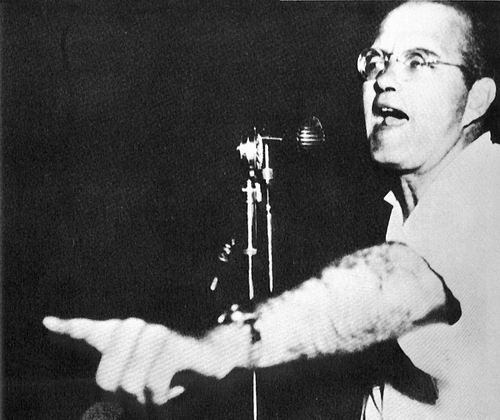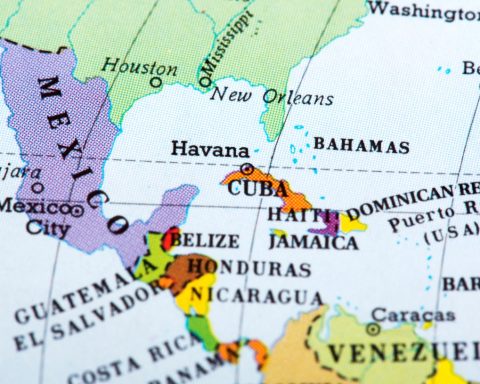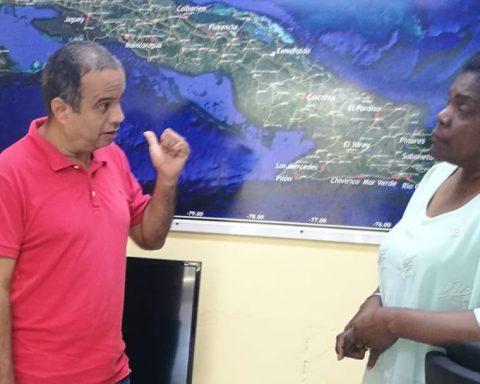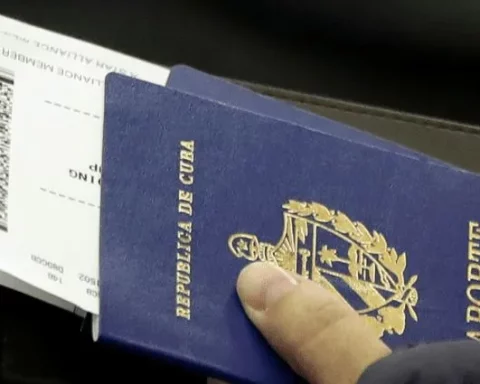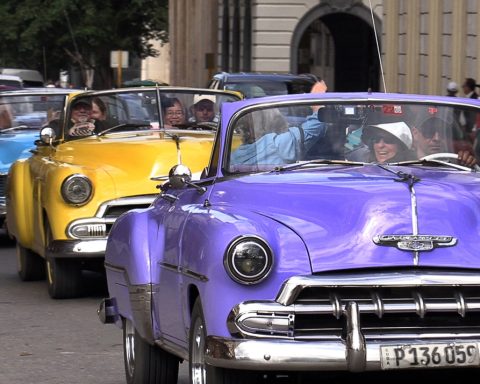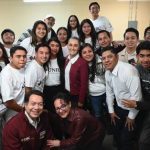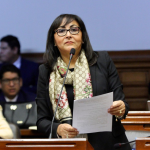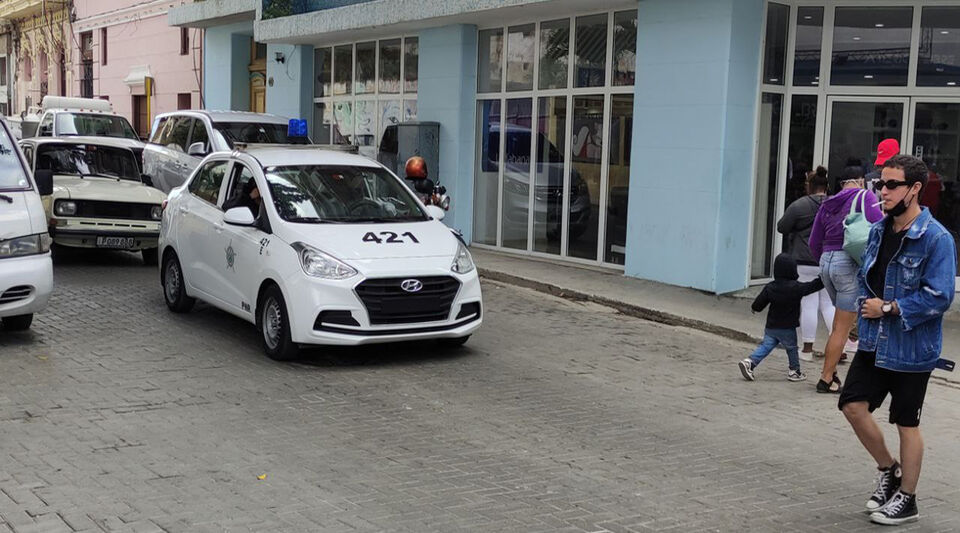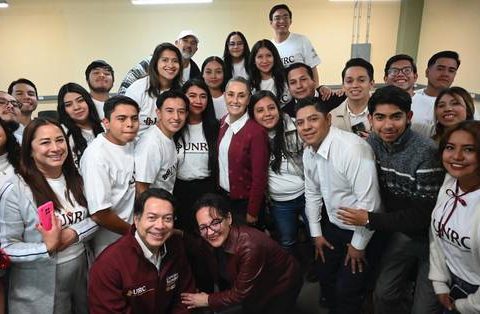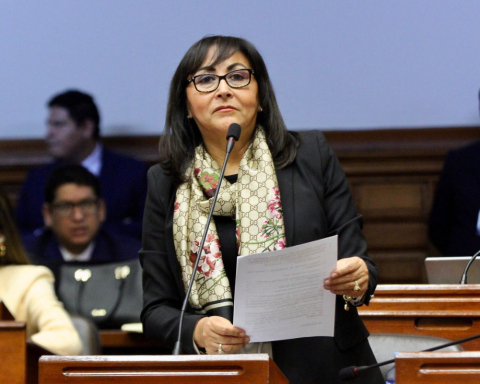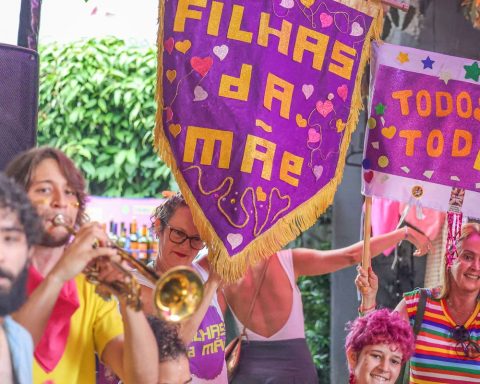I heard Lela defend her father when I was just a teenager. It was on the terrace of my house, my mother sitting on a swing, Lela on another, and I closely listening to the conversation. That afternoon I learned of two men facing each other in 1951: Aureliano Sánchez Arango, Minister of Education, and Eduardo Chibás, Senator of the Republic. Today, seventy-two years later, that confrontation continues to cause controversy; thanks to Lela Sánchez, who questions the veracity of Chibás’s accusations and assures the honesty of Aureliano, his father. Chibás is a hero in the history of the Cuban Revolution. Fidel Castro catalogs him as his leader securing that “without the preaching of Eduardo Chibas… July 26 would not have been possible.” Sánchez Arango left Cuba and died in exile in Miami. It is an exceptional attempt, unique perhaps, to review the revolutionary history of Cuba.
The story is exciting: two politicians, budding candidates for the presidency of Cuba, face each other in a ruthless public duel. Year 1951. One of them, Chibás, accuses Sánchez Arango in his well-heard radio program on CMQ of stealing school lunch funds to build some properties in Guatemala. Chibás relentlessly repeats his accusations: he affirms that he has the evidence of the crime in his work briefcase. Sánchez Arango challenges him to debate the issue and shows up at a public debate which Chibás decides not to attend. Popular opinion turns against Chibás, “why doesn’t he show the evidence?” Sánchez Arango has insisted to Chibás: “He shows the evidence.” It all ends on August 5, 1951 when Chibás, embarrassed by public rejection and possibly in the midst of an emotional crisis, shoots himself in the lower abdomen. He passes away eleven days later.
Lela Sánchez has just revived the issue by sending a protest letter to Alfonso Noya Martínez, president of the ICRT, for a televised report on the anniversary of the death of Eduardo Chibás. Sánchez complains because “it is not admissible to accept that a journalist takes the responsibility of publishing an event with a wrong approach to historical reality and much less admissible that it be published without first reviewing the veracity of what she intends to publish.”
I have bad news for my admired Lela, journalists are not judges of history but simple chroniclers of a reality, often tainted by versions of power. Also, where could the journalist, Arlen García Rosales, have reviewed the veracity of her data? In La Mentira Infinita, your book on the subject whose publication was not authorized in Cuba? In the Debate on the controversy Aureliano vs. Chibás on July 4, 2013 in the halls of the UNEAC, seen by 2416 people in 9 years, where there was no controversy or conclusion about what happened, but rather a civilized discourse of opposing opinions? and in the end a discreet revolutionary mask? All the participants in said meeting and others who were not, respect Lela for defending her father, Aureliano Sánchez Arango, from a communist past, against Eduardo Chibás, declared anti-communist in life. And they admit that “Aureliano was not a thief”. But the undeniable influence of Chibás —suitcase and supporting documentation apart— in the reality of the Revolution sealed the controversy before posterity. “An error cannot stain the figure of a hero”, they say and it is true. Although Lela does not intend it either, but rather that it be clarified publicly and officially, that his father was not a thief, and that a revolutionary hero —without ceasing to be one— accused him under cover of a useful lie. Hard task.
But the dispute, in essence, implicitly transcends the task of clarifying that historical fact. Increasingly history is clouded in its search for an “objective” truth. We are assured that it is non-existent, unattainable and only definable through the different political-ideological narratives. Based on the concept of “post-truth”, where objective facts have less influence in defining public opinion than those that appeal to emotion and personal beliefs. Subjectivity trumps objectivity. George Washington, Thomas Jefferson, Lincoln and many more are currently challenged in the United States in their moral and patriotic dimension by historical relativists who rely on the convenience of a political result.
Eppur if you move
“But it moves” said Galileo before the court of the Inquisition.1 The objective truth exists, despite the fact that it is often elusive due to the interests of others. And there are many facts in the recent and not so recent official Cuban narrative that require a real historical examination. Newton Briones Montoto mentioned it at the aforementioned meeting at UNEAC, that July 4, 2013: “How many badly told stories exist,” he said.
Due to my provincial love for Cuba, and perhaps because it is also a bit cheesy, I always enthusiastically remember that beautiful, although less and less valid phrase by José de la Luz y Caballero: “Only the truth will put the virile toga on us.”
***
Note:
1 The phrase argues against the possibility of historical veracity, giving some reason to relativists. The popular phrase is only attributed to Galileo. He possibly never mentioned her.
